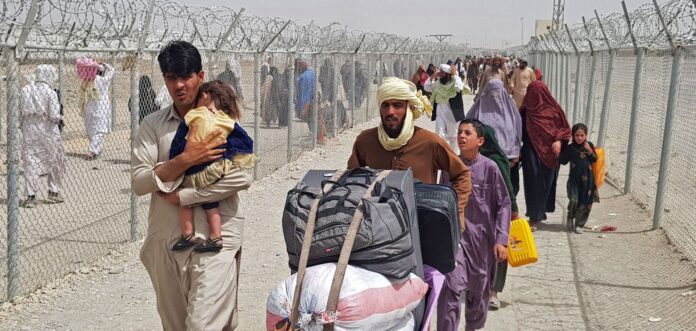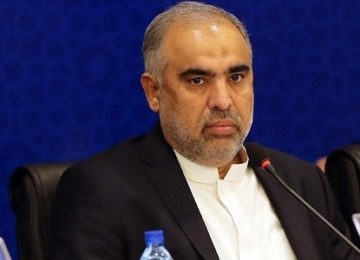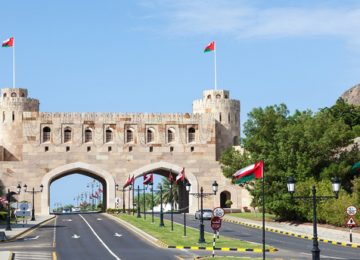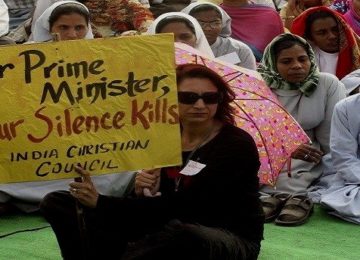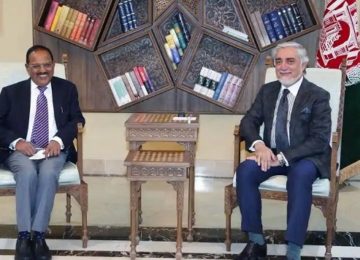By Elsa Imdad
Afghans make up one of the world’s largest refugee populations, according to the UNHCR (United Nations High Commissioner for Refugees). There are 2.6 million Afghan refugees registered worldwide, with 2.2 million of them in Iran and Pakistan alone. Another 3.5 million people have been internally displaced, fleeing their homes and looking for a haven within the country. The number of persons escaping is likely to increase, given the deteriorating security situation
Developed nations across the globe complain about the refugee influx without acknowledging the fact they were the ones who created them in the first place. They have been least welcoming to Afghan refugees though they waged a 20-year-long war in Afghanistan. The Biden administration made unprecedented claims of giving an easy passage to people who were, in one way or the other, affiliated with the international organizations. In practice, the US has only accommodated over 76000 while several others await their uncertain destiny in refugee camps. Western cold-heartedness has become more evident since Afghan assets got withheld, and Ukrainians suddenly appeared more in need of help from the US and Europe than the starving Afghans.
Afghan applicants must fly to a third country to pursue their immigration petitions since most embassies in Kabul closed last year, whether they are applying to the United States, Canada, the European Union, or Australia.
According to quarterly data from the US State Department, more than 1,300 Afghan SIV candidates were denied between October and December 2021. 1,462 Afghan primary SIV applicants were denied in the previous quarter, from July to September. Denials are granted for several reasons, including a lack of proper documentation, a failure to demonstrate important service to the United States government, and the inclusion of negative information about the applicant/s.
Many Afghans have come to Pakistan to get their visa applications processed. In the last nine months, nearly 14,000 Afghans have relocated to Germany via Pakistan.
Canada has utilized its High Commission in Islamabad to handle Afghan immigration applications, as part of a vow to welcome 40,000 Afghans.
But things are still slow and refugees are losing hope and threshold.
Afghan refugees in Shengjin, Albania, claim they are suffering difficulties while waiting for visas to the United States and other countries to be processed.
On the other hand, the long journey to the United States for those Afghans who were evacuated as their country fell to the Taliban last summer has stopped and perhaps ended, at a sun-baked cluster of tents and temporary housing on an American post in the Balkans.
While more than 78,000 Afghans have arrived in the United States for resettlement since August, the fate of those identified for enhanced security vetting and routed to Camp Bondsteel in Kosovo remains uncertain. The US will not compel the hundreds of people there to return to Afghanistan, where they may suffer retaliation, but, again, the stagnating mode of processing refugee petitions on the US’ part is a major hitch for the displaced Afghans.
Here Is the Irony
Countries considered high-income host just 17% of all refugees. Germany is the only European Union country that makes the top 10 refugee-hosting countries. Countries that account for just 1.3% of the global GDP are hosting 40% of all refugees. Many of these countries were already experiencing civil unrest and violence before they began to host refugees. Just three countries—Turkey, Colombia, and Pakistan—host nearly a quarter of the world’s refugees.
But countries like Pakistan and Iran already struggle on their own given multifaceted issues, so refugees face severe hardships while staying in these countries.
For instance, life in Iran is difficult for Afghan refugees, who now number more than four million, according to government figures, about half a million are believed to have arrived since the Taliban took power last August. For one thing, years of tremendous economic strain have made life more difficult for ordinary Iranians, much alone millions of refugees, the majority of whom lack residency permits, housing, and jobs.
There have also been complaints of mistreatment of Afghan refugees in Iran. Several videos were posted online last month purporting to show refugees being thrashed by Iranian border guards.
The West Should Fix It
The US and allied forces failed to bring a sustainable change in Afghanistan along with the sessile, so-called democratic governments of Karzai, Ashraf Ghani, and Abdullah. The former Afghan corrupt politicians and officials have left with their families and companions, living a comfortable life abroad. It was the common, lower and middle-class, and, not to forget, daring Afghans who worked with the foreign INGOs (International Non-Governmental Organizations) and embassies, hoping for a better future for themselves and Afghanistan. They are the ones suffering and facing severe circumstances, and an opaque future.
One sees an expedient West when it comes to addressing the Ukrainian refugee crisis, but, in the case of Afghans and others, there are several security clearances and an overall tedious process to deal with refugees’ petitions from this part of the world. Poland, for instance, accepted Ukrainian refugees when not quite long ago, it was telling scores of Afghans, Syrians, and Iraqis: no, the country is full.
Besides, the global, mainstream media, for quite a while, also turned a blind eye to the miseries of Afghan refugees. The entire section of an international newspaper would be dedicated to the Russian attacks on Ukraine, but not a single news from Afghanistan. It seems absurd that even in the 21st century western nations discriminate against refugees based on their skin color (and religion).
The US and allies should fix what they started and marred in Afghanistan.
They welcomed the Afghan political elite who looted the public’s money but are reluctant to process the cases of those who are in dire need of a haven. On humanitarian grounds, the global advocates of democracy and human rights must open their doors to Afghan refugees. At least, this could be one way to repent and earn the goodwill of the displaced population.
This article was originally published in Matrix Magazine
Elsa Imdad is a USG Alumna. She holds a bachelors in modern languages with an English major and Spanish minor. She has previously been part of American Spaces in Pakistan and now works as a Project Coordinator at the Center for Research and Security Studies. She is also a weekly contributor for Matrix. Her interests include public diplomacy, language teaching, peace and conflict resolution, capacity building for marginalized groups, etc.



